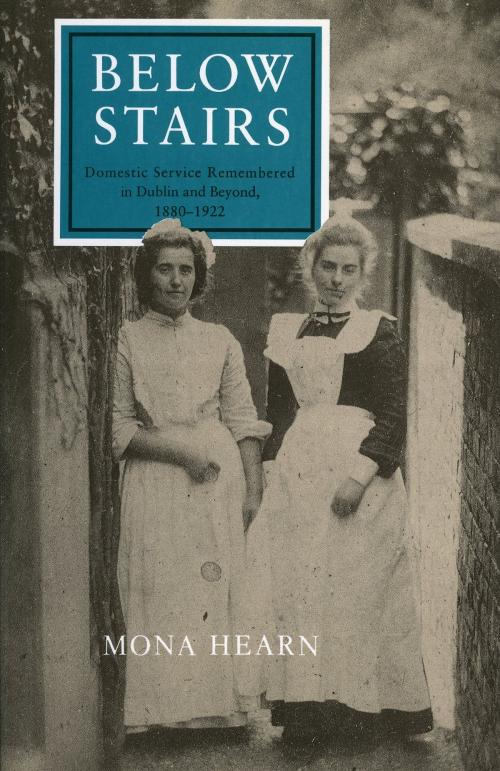| Author: | Mona Hearn | ISBN: | 9781843514510 |
| Publisher: | The Lilliput Press | Publication: | November 4, 1993 |
| Imprint: | The Lilliput Press | Language: | English |
| Author: | Mona Hearn |
| ISBN: | 9781843514510 |
| Publisher: | The Lilliput Press |
| Publication: | November 4, 1993 |
| Imprint: | The Lilliput Press |
| Language: | English |
A hundred years ago servants underpinned middle- and upper-class life in Ireland, and domestic service was the major source of employment for women before social conditions changed utterly after the First World War and labour-saving appliances took their place. Two generations on the domestic servant is an almost extinct species. This book examines an area of life which has never been adequately reflected in Irish literature, labour or social history. The author of this pioneering study bases her work upon interview sources, government reports, royal commissions and census returns, as well as household accounts, inventories, family papers, contemporary newspapers, diaries and reminiscences. She discolses and interprets the little-known world of life below, and occasionally above, stair: the conditions and lifestyles of its inhabitants; their recruitment, training and duties; the wages paid, clothes worn and food eaten; the freedoms conceded, the privations endured. This book affords unique views of the lives of the ordinary and extraordinary, of rulers and the ruled. It prepares the ground for interpretations of a forgotten age.
A hundred years ago servants underpinned middle- and upper-class life in Ireland, and domestic service was the major source of employment for women before social conditions changed utterly after the First World War and labour-saving appliances took their place. Two generations on the domestic servant is an almost extinct species. This book examines an area of life which has never been adequately reflected in Irish literature, labour or social history. The author of this pioneering study bases her work upon interview sources, government reports, royal commissions and census returns, as well as household accounts, inventories, family papers, contemporary newspapers, diaries and reminiscences. She discolses and interprets the little-known world of life below, and occasionally above, stair: the conditions and lifestyles of its inhabitants; their recruitment, training and duties; the wages paid, clothes worn and food eaten; the freedoms conceded, the privations endured. This book affords unique views of the lives of the ordinary and extraordinary, of rulers and the ruled. It prepares the ground for interpretations of a forgotten age.















